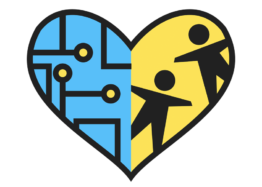When we first began our crazy adventure to start Techdren, we had always planned on giving the students more than just a tablet that had an operating system. We wanted the students and teachers to see that computers and technology are more than just the fundamental basic emailing and searching the web, we wanted to add more applications to expand their learning styles. I mean come on, you either go big or go home.
For this first round of computers, we used Windows 10 as the operating system and Kolibri for most of the applications and information uploaded onto the tablets. Kolibri is an offline app tailored specifically to learning environments in low-resource communities. We chose Kolibri because it had a large source of materials available in English and Kiswahili. It is also specifically packaged for offline use, as we knew getting any internet would be too costly. All of these resources and apps were planned out by Abbey Barr, who did a lot of research on what would best suit the Pemban students.
Once Kolibri was set up with a username and password, we downloaded a variety of “channels”, or resources, on each tablet. These included:
- African Storybook: A large selection of picture books in Kiswahili
- Blockly Games: Educational tools to learn programming in a fun game format
- CK-12: a huge library of textbooks, lessons, workbooks, and practice problems in Math, Science, and English
- Khan Academy Kiswahil: Educational videos on a variety of subjects
- Sikana: Videos on discovering renewable energy, how to woodwork, use a sewing machine, built in the forest, create electricity, be a mason, save a life, increase soil fertility, make compost, and construct a small-scale sustainable agriculture
- Touchable Earth: kids teach kids about the world on subjects that also promote tolerance for gender, culture, and identity.
In addition to Kolibri, we put Goodwill Community Foundation resources, a large collection of PDFs on subjects like Mathematics, Reading, Technology Basics, and Microsoft Office. Each tablet also had LibreOffice, which is basically a free version of Microsoft Word.
As stated in a previous blog post, Success Story #1, pt. 2, the students and teachers loved the additional applications and were already beginning to use the applications. Seeing the smiling faces of the Pemban students and teachers as they played with the tablets made everything worthwhile and we hope it has also made a positive impact on you.
Thank you,
Madison Brumbelow
Assistant Technical Officer

